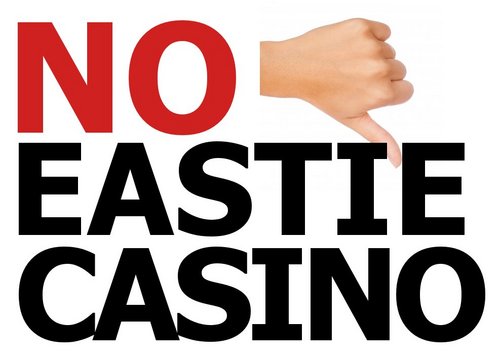IRS Cited Caesars for Bank Secrecy Act Breach
By Christopher Palmeri - Oct 30, 2013
Caesars Entertainment Corp. (CZR) was cited by the Internal Revenue Service for Bank Secrecy Act violations, according to a letter from U.S. investigators notifying the company of a money-laundering probe.
The action against the company’s flagship hotel was disclosed in an Oct. 10 letter from the Treasury’s Department’s Financial Crimes Enforcement Network. It was posted yesterday on the website of the Massachusetts Gaming Commission, where the staff recommended denying Caesars a license in the state.
The IRS handles casino compliance examinations for FinCen, according to the letter. Stephen Hudak, a spokesman for FinCen, declined to comment on the letter, citing agency policy, as did Jose Vejarano, a spokesman for the IRS in Washington.
The 1970 Bank Secrecy Act requires financial institutions to assist government agencies in detecting and preventing money laundering, such as reporting cash transactions above $10,000.
Caesars, the largest owner of casinos in the U.S., said in an Oct. 21 filing that FinCen is investigating whether to assess a civil penalty and take enforcement action against the company. The company also disclosed that a grand jury is investigating alleged Bank Secrecy Act violations at Caesars Palace in Las Vegas.
Caesars “intends to cooperate fully with both the FinCen and grand jury investigations,” according to the filing. The company said it was “currently unable to determine the probability of the outcome of these matters or the range of reasonably possible loss, if any.”
The company declined to comment on the letter that says Caesars was cited for Bank Secrecy Act violations, according to an outside spokesman, Stephen Cohen.
‘Not Leader’
Jennifer Shasky Calvery, the director of FinCen, said in an Oct. 28 interview that casinos aren’t effectively sharing information across their business units and that executives in charge of regulatory compliance are being overruled by officials in other departments. Casinos also need to pay more attention to their customers’ sources of funds, she said.
“Think of it as the compliance versus business showdown,”Shasky Calvery said. “Compliance notes a problem, the business side has the ability to say that’s not important. The business needs overrule the compliance needs.”
Shasky Calvery said she couldn’t comment specifically on the Caesars investigation.
‘Appropriate Policies’
“We believe that we have appropriate policies in place to ensure anti-money laundering compliance,” Caesars Chairman and Chief Executive Officer Gary Loveman said in an Oct. 13 letter to the Massachusetts Gaming Commission, which was considering the company for a gaming license.
“High-end play, which we believe to be the main focus of the government’s investigation, is a small part of our company’s business and we are not a leader in this part of the industry.”
In the Oct. 10 letter, FinCen said that after a 2012-2013 examination, the IRS “cited Caesars Palace for a range of BSA violations.”
The casino responded to the IRS’s findings on Aug. 12, according to the FinCen letter.
Caesars, based in Las Vegas, fell 0.9 percent to $18.40 yesterday in New York. Shares of the company, which reported a $761.4 million third-quarter loss after markets closed, have more than doubled this year.




No comments:
Post a Comment